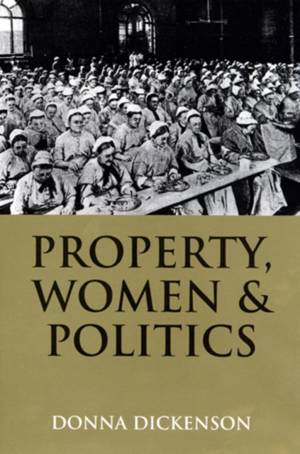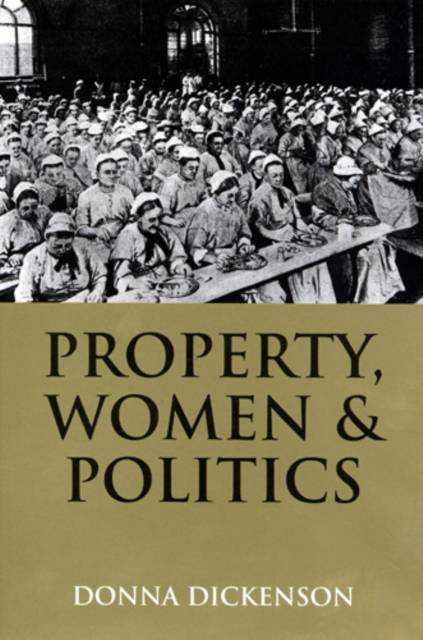
- Retrait gratuit dans votre magasin Club
- 7.000.000 titres dans notre catalogue
- Payer en toute sécurité
- Toujours un magasin près de chez vous
- Retrait gratuit dans votre magasin Club
- 7.000.0000 titres dans notre catalogue
- Payer en toute sécurité
- Toujours un magasin près de chez vous
Description
Although many feminist authors have pointed out the ways in which women have been property, they have been less successful in suggesting how women might become the subjects rather than the objects of property holding. Property, Women, and Politics draws on a series of historical and anthropological studies which include the property position of women in classical Greece, the Anglo-American doctrine of coverture, nineteenth-century prostitution, and structural adjustment programs in sub-Saharan Africa; and it includes a comprehensive critique of the treatment of property by both mainstream political theorists and important second-wave feminists. While most canonical theories of property are guilty of excluding the experience and condition of women, thereby ruling out full subjecthood for them, Donna Dickenson argues that the relationship between holding property and becoming a subject is not sex-specific.
Property, Women, and Politics deconstructs and contests the concept of property. It also uses important insights in recent feminist thought to suggest productive directions for a reconstructed theory of property, one in which women's work counts. The reconstructed model is applied to such pressing areas of medical ethics as egg and sperm donation, contract motherhood, abortion, and the sale of fetal tissue. It also shows how we can radically revise our assumptions about the "marriage contract."
Spécifications
Parties prenantes
- Auteur(s) :
- Editeur:
Contenu
- Nombre de pages :
- 240
- Langue:
- Anglais
Caractéristiques
- EAN:
- 9780813524580
- Date de parution :
- 01-09-97
- Format:
- Livre broché
- Format numérique:
- Trade paperback (VS)
- Dimensions :
- 153 mm x 230 mm
- Poids :
- 408 g

Les avis
Nous publions uniquement les avis qui respectent les conditions requises. Consultez nos conditions pour les avis.






